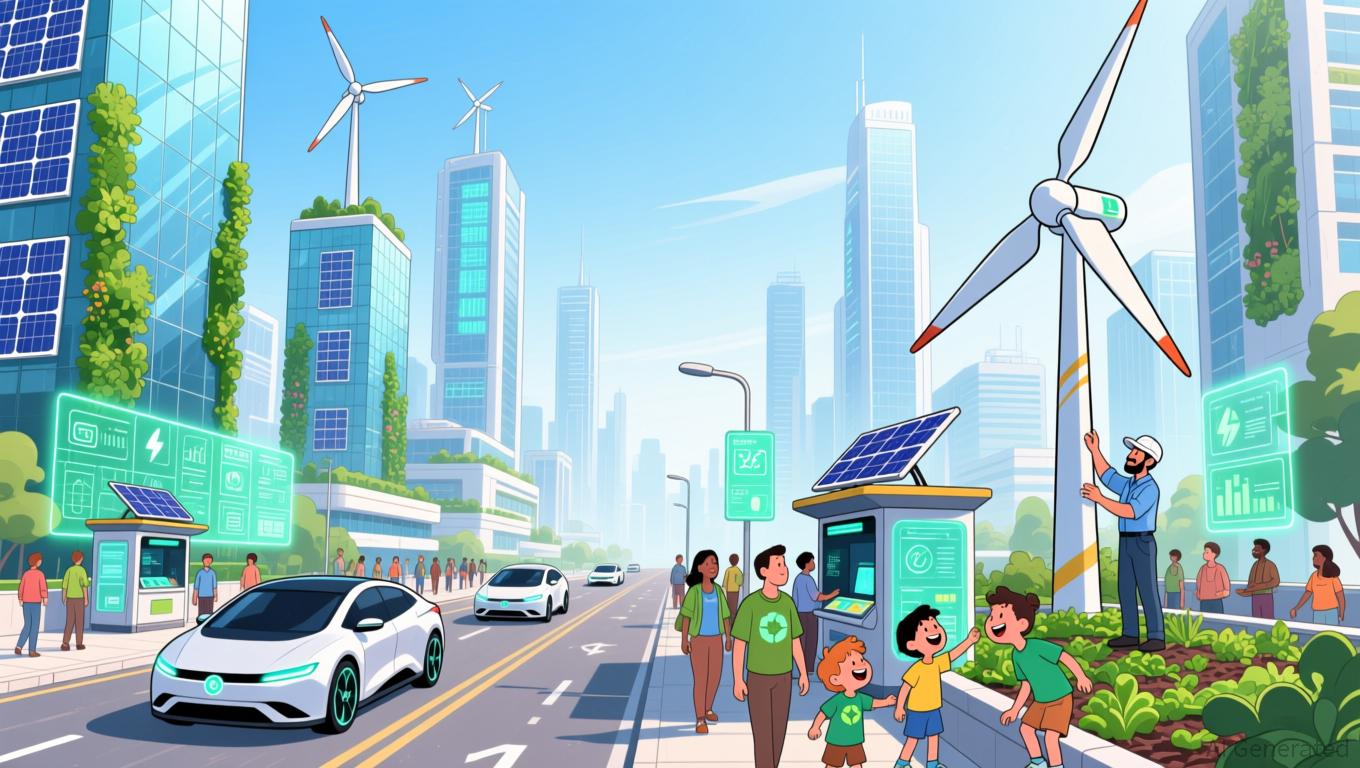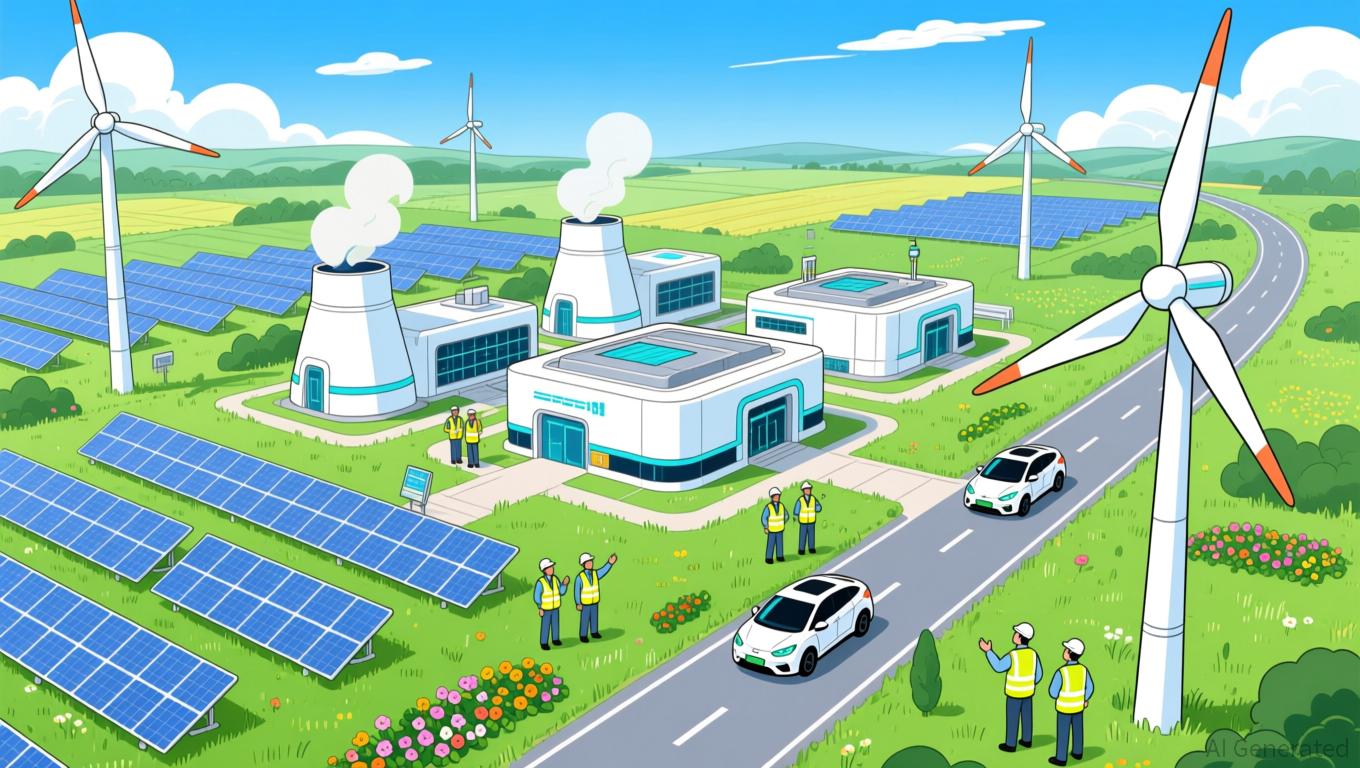Harmonizing Progress, Earnings, and Environmental Responsibility: Redefining the Modern Corporate Sustainability Formula
- Global corporations are embedding sustainability into operations to meet environmental goals, driven by regulations and investor demands. - HP Inc. and Tesla highlight AI integration and EV cost savings as strategies to balance profitability with carbon reduction. - Energy firms like Eco Wave Power and Core Scientific are advancing renewables and energy-efficient infrastructure amid decarbonization trends. - Challenges persist, including economic pressures and regulatory hurdles, but innovations in finan
Corporate Strategies Evolve to Meet Environmental Ambitions
Major international companies are rethinking their approaches to better align with ambitious environmental objectives. This shift is fueled by stricter regulations, growing investor expectations, and the pressing need to address climate change. Across industries—from technology to energy—businesses are weaving sustainability into their core operations and harnessing innovation to strike a balance between profitability and environmental responsibility.
Technology Leaders Drive Sustainable Growth
HP Inc. recently reaffirmed its dedication to generating long-term value during its Q4 2025 earnings discussion. The company outlined plans to outpace market growth in 2026 by embedding artificial intelligence throughout its business processes. Despite facing short-term obstacles such as memory market fluctuations, HP emphasized its track record in overcoming such issues and its commitment to disciplined execution as a means to advance sustainability.
Similarly, Tesla has spotlighted the environmental and financial advantages of its Model Y in the Indian market. Reports indicate that buyers can recoup roughly a third of the vehicle’s cost through savings on fuel and maintenance within four to five years. Sharad Agarwal, Tesla’s General Manager, highlighted that charging an electric vehicle at home costs about one-tenth as much as fueling with petrol, making EVs an attractive option for both reducing carbon emissions and saving money.

Energy Sector Shifts Toward Renewables
The energy industry is also undergoing a significant transformation, with a growing focus on renewable sources. Companies like Eco Wave Power Global AB are pioneering the conversion of ocean waves into clean electricity using affordable technology installed on existing marine infrastructure. Other organizations, such as Fuel Tech, Inc., are developing solutions to optimize industrial boilers and control pollution, reflecting a wider movement toward decarbonization. Additionally, Core Scientific’s recent agreement to provide 70 MW of infrastructure highlights the increasing demand for energy-efficient data centers, though the company noted that progress depends on regulatory approvals and power supply.
Diversification Across Industries
Efforts to address environmental concerns are not limited to technology and energy. SDLG, a manufacturer of construction equipment, is aiming for a 30% annual increase in overseas revenue as it broadens its international presence. The company’s strategy includes working closely with dealers to improve service quality and expand market share, supporting sustainable growth. In the financial sector, the BBC’s “Project Ada” plans to outsource non-content roles to save $130 million, reallocating resources to AI-driven projects that could enhance efficiency and minimize waste.
Challenges and Economic Realities
Despite these advancements, companies still face significant challenges. For example, Grupo Supervielle in Argentina reported a net loss of AR$50.3 billion in the third quarter of 2025, largely due to restrictive monetary policies. This case illustrates how external economic conditions can complicate sustainability efforts. Nevertheless, the company’s focus on managing costs and increasing fee-based income demonstrates an ongoing effort to balance environmental initiatives with financial stability.
Future Outlook: Sustainability as a Core Principle
The drive to integrate environmental considerations into business practices shows no signs of slowing. BloombergNEF forecasts that the global “buy now, pay later” market will reach $8.25 billion in Sweden and $2.5 billion in Chile by 2030, as more consumers embrace flexible payment options that may help curb overconsumption and waste. In healthcare, a peer-reviewed study by DarioHealth revealed a 23.5% decrease in hospitalizations among diabetes patients using its digital platform, highlighting the intersection of sustainability and cost savings in the sector.
As organizations continue this transformation, their ability to innovate, comply with regulations, and maintain economic viability will be crucial. Achieving lasting success will require not only technological breakthroughs but also a fundamental rethinking of traditional business models to ensure that environmental priorities remain at the heart of global economic progress.
Disclaimer: The content of this article solely reflects the author's opinion and does not represent the platform in any capacity. This article is not intended to serve as a reference for making investment decisions.
You may also like
Crypto Mining Faces Energy Cost Challenges as Tether Withdraws from Uruguay
- Tether halts Uruguay Bitcoin mining due to rising energy costs and unresolved tariff disputes, ending a $500M project with 30 layoffs. - Unpaid $5M electricity bills forced power cuts in July 2025, accelerating the project's collapse despite initial renewable energy ambitions. - The exit highlights Latin America's regulatory challenges for crypto mining, prompting Tether to shift operations to Paraguay and El Salvador. - Analysts note energy economics now dominate mining strategies, with firms prioritizi

DOGE Holds $0.1499 Support, Reviving Long-Term Bullish Structure and $1 Projection

Dogecoin Holds $0.144 Support as Price Climbs to $0.1484 in Tight Reversal Range

SOL Trades Near Resistance While Heatmap Highlights Major $145 Liquidation Band
